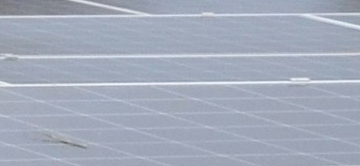Isis Durrmeyer is a TSE-UTC assistant professor who specializes in industrial organisation, environmental and Structural economics. She mostly works on theoretical approaches and empirical analysis of the automotive industry regulation. She has analysed the French ‘feebate’ policy and compared it to the US system of fuel economy standards.
Isis started to work on the French automotive market in 2008 when a new regulation was implemented in favour of greener vehicles. “The ‘bonus-malus’ regulation made energy-efficient vehicles cheaper through tax rebates, and polluting cars more expensive through heavier taxation,” she explains. “I have gathered a dataset of vehicles sold in France between 2003 and 2008 which allowed me to study this new regulation.”
With her two co-authors, the researcher has tried to understand the impact of this ‘feebate’ policy: “Our results show that people overreacted as French buyers massively bought energy-efficient cars following this new regulation. We believe this surprising effect is due to the rise of new technologies, making cars more efficient; the regulation and its effects on the market prices; and, finally, buyers’ growing preference for greener cars. We measure the contribution of each of these factors.”
To compare these results with other, different regulations, Isis is working with Mario Samano (HEC Montréal) on a comparison with the American regulation. “In the US, market regulators decided to use fuel economy standards, which force companies to sell, on average, a fleet of vehicles with fuel efficiency above a determined, “standard”, level. Car manufacturers who don’t comply have to pay taxes.” This system leads companies to increase the price of polluting cars and to encourage buyers to opt for fuel-efficient models.
Analysing the data from both countries, Isis and her co-author developed a model detailing the effects of both reforms and the costs for the two governments. “Our model hints that the French system is more efficient on the market. It has better effects with less costs and we believe that this type of regulation could be duplicated in many countries willing to make a move towards greener cars. Of course, other types of regulation exist, such as heavier taxes on fuel, and should also be studied.”
In parallel to this study, Isis is also working on the implicit effects of the French ‘bonus-malus’ policy, trying to identify which citizens were the most affected. “According to the first results, it seems that poorer and richer buyers benefited the least from the reform. It also looks like rural areas are less favorably impacted and of course, diesel cars were advantaged by this regulation which considers them very fuel-efficient as only CO² emissions are taken into account.” The impact of diesel cars has recently sparked plenty of public debate in France as diesel engines emit more particulates than traditional cars, as well as other pollutants such as nitrogen oxides.
Isis is also developing new theoretical tools to understand the automotive industry, notably how the price paid by buyers differs from the price initially on display. “According to my model, the announced price is the maximum price of a car and buyers, on average, get a 10% discount. It appears that some buyers end up paying the full, maximum price of the vehicles while others succeed in getting a substantial discount.”
On the same subject, Isis is also working on the price range of a single vehicle series depending on options, engine specifications and quality. “I’m developing complex, flexible models to better understand how car manufacturers optimise the pricing of their vehicles. I’m hoping to propose better analytical tools of car prices to understand competition in differentiated products markets more generally.”
In the future, the researcher wills to cross these new tools she is developing with her regulation analysis to present a broader picture of the market and its evolution and to build more robust, flexible models.




